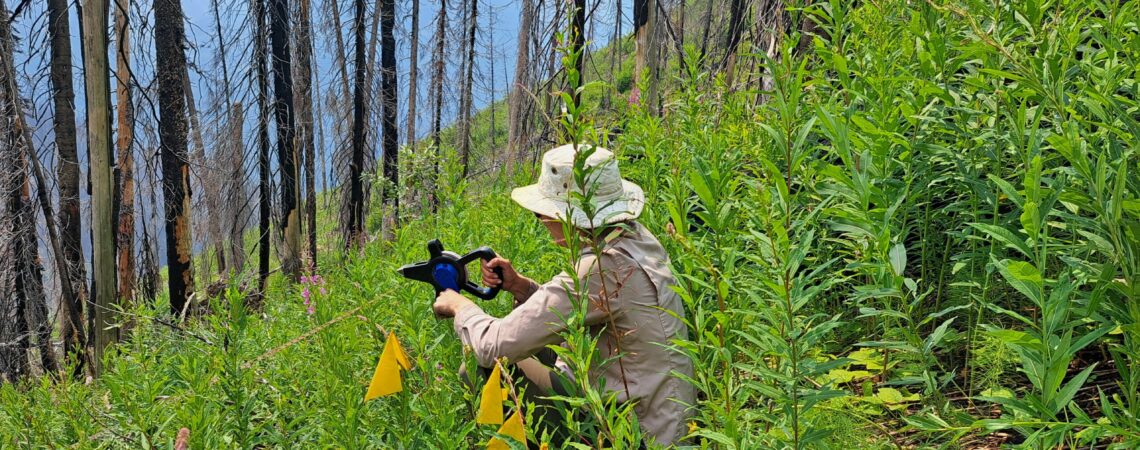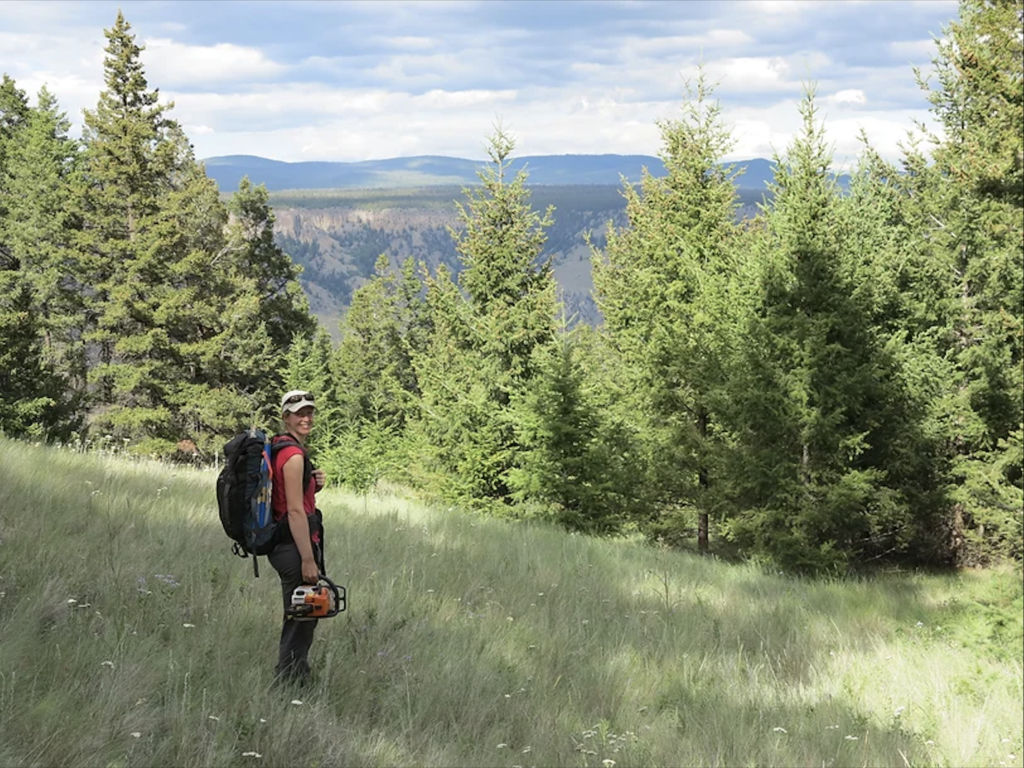
Dr. Jill Harvey, PhD
I am the Canada Research Chair in Fire Ecology and Assistant Professor at Thompson Rivers University, Kamloops, BC.
Our research falls broadly under the areas of forest and climate change, tree biology, and disturbance dynamics. The interdisciplinary evaluation of tree-ring, ecological and climate datasets represents an applied geographic perspective on understanding the drivers of spatiotemporal variability of forest ecosystems and processes.
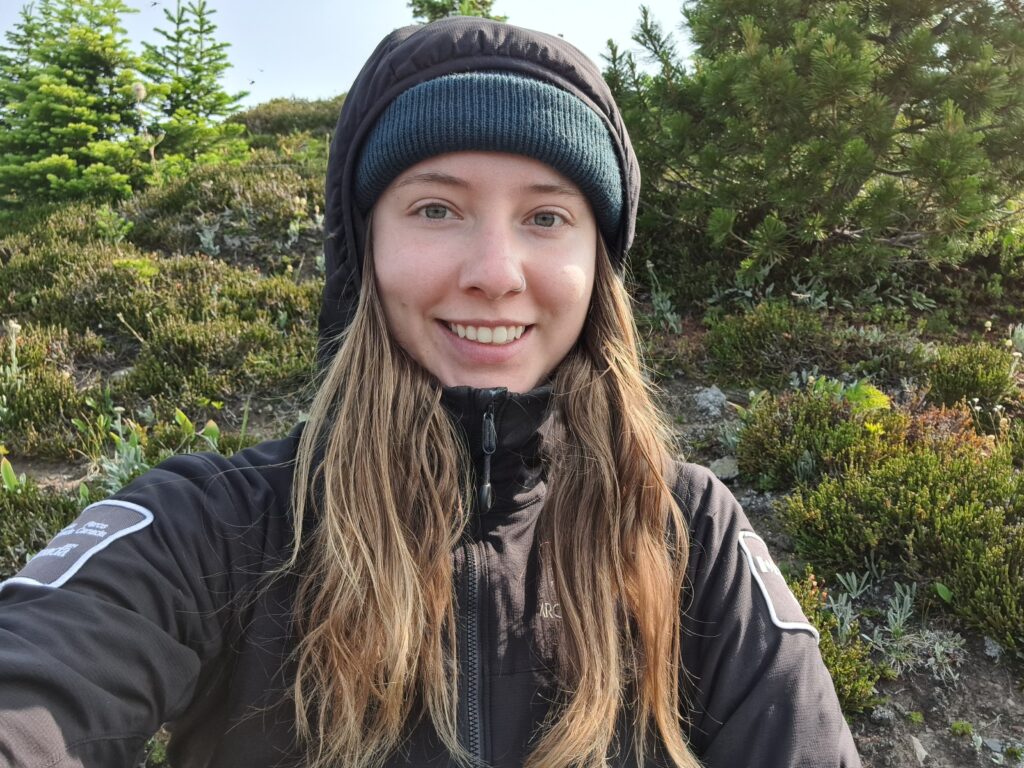
Natalie Maslowski, Master’s student
Impacts of short-interval wildfire on forest regeneration in Glacier National Park, British Columbia
Natalie Maslowski is a Master’s student in Environmental Sciences at Thompson Rivers University. Her research-based Master’s thesisattempts to understand the impacts of short-interval wildfires on forest regeneration in the subalpine setting of Glacier National Park, British Columbia. She has experience working in spatial analysis, fire regime characterization, and fire weather analysis both within the academic field and in the context of fire management for Parks Canada (she looks great in Parks green). When she is not scouring the ground for seedlings in the field or labouring over R code in the office, she can be found trail running in the mountains, or sliding down the slopes on her skis when weather prevails.

Andrea Robinson, Master’s student
Forest encroachment drivers, dynamics, and wildfire resiliency of grassland-forest ecotones in interior British Columbia
Andrea Robinson is a graduate student at Thompson Rivers University completing a Master’s degree in Fire Ecology. She has worked with the BC Wildfire Service for 6 years, most currently as an Initial Attack Crew Leader – starting her passion for fire ecology. Her Master’s thesis focuses on the relationship between encroachment, drought, and prescribed fire in the Churn Creek Protected Area (CCPA). Historically, grassland-forest ecotones like CCPA were dominated by mixed severity high frequency fires. Due to changes in the fire regime, grasslands are increasingly at risk from encroachment due to conifer infilling which can lead to decreases in biodiversity and increases in habitat loss. Andrea’s research will use CCPA as a case study to look at ecological effects on understory plant communities from prescribed fire and mechanical tree removal, non-native vegetative species invasion, and the drivers behind why encroachment is occurring in this ecosystem. This research aims to support mitigating encroachment, sustaining native grasses, and creating fire resilient forests in the CCPA, and therefore other grasslands of interior BC.
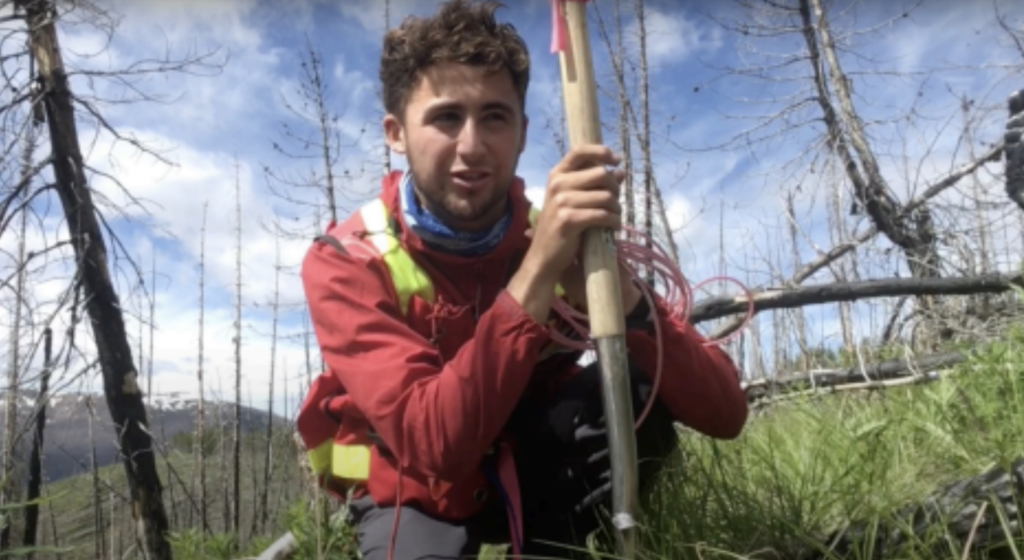
Olivier Jumeau, Master’s student
Olivier Jumeau is a 22-year-old Master’s student with a strong interest in wildlife ecology and animal-wildfire relationships. His project focuses on time-after-fire effects of lichen regeneration in woodland caribou habitat in South-Central British Columbia. For his research, he is working closely with the Ulkatcho First Nation of Anahim Lake to guide research objectives and practises on their traditional territory. Preceding his recent start to his Master’s, he studied the impacts of Nordic ski-hill development on black bear summer diet. When he isn’t biking up to Sun Peaks to collect bear scat, he is swimming, collecting conifer cones, and Nordic skiing in the winter. During the school year, he plays goalkeeper for TRU Wolfpack Men’s soccer, for which he was part of the infamous 2022 U-Sports National Championship victory.
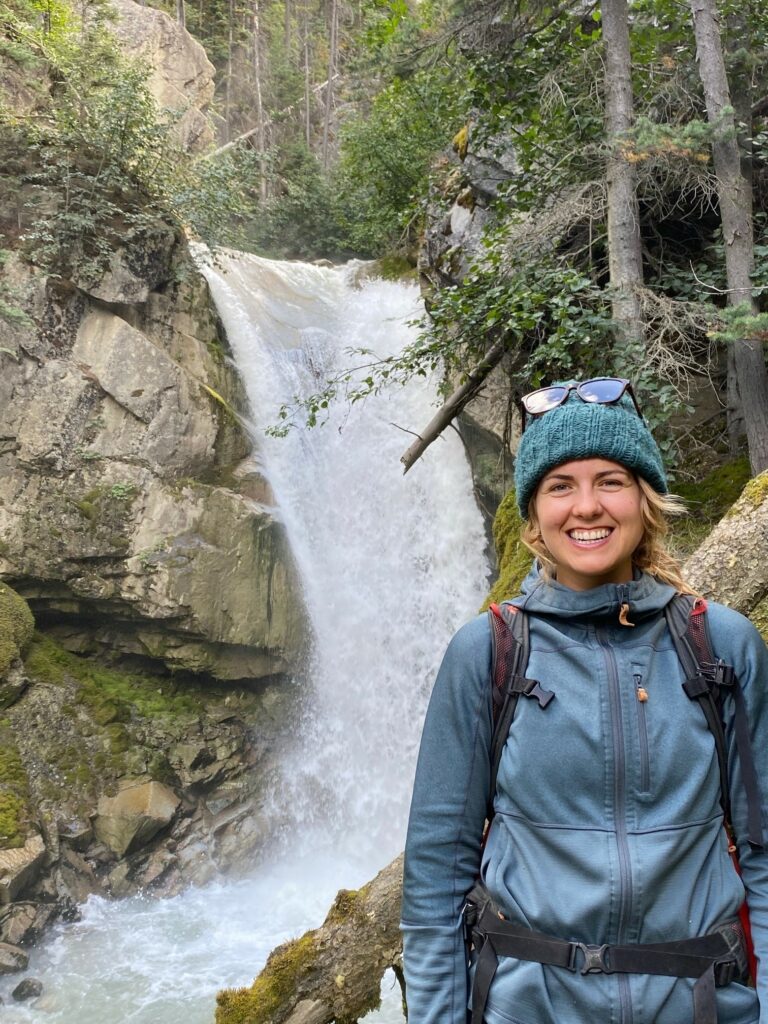
Alexis Myhre, Master’s student
Effects of Fire Exclusion on the Historical Fire Regime in Xeni Gwet’in (Nemiah Valley)
Alexis Myhre is a Master’s student with Dr. Harvey in the WiLDLAB. Her research focuses on elucidating the historical fire regime in Nemiah Valley, British Columbia for which she recently received the notable Natural Sciences and Engineering Research Council of Canada (NSERC) award. Before her academic pursuits, Alexis worked for eight seasons with the BC Wildfire Service, supporting her experience in fire management. Upon starting her academic endeavours, Alexis started taking summer work with the Xeni Gwet’in First Nations as a Title Lands Ranger and a FireSmart Coordinator. Her fascination lies in the intersection of Indigenous knowledge and fire as a landscape management tool. She’s committed to continual learning and relearning, striving to understand fire management application and ecology through diverse perspectives. She also recently completed an Undergraduate Honour’s project with the WiLDLAB.

Courtenay Campbell, Undergraduate Honour’s
Effects of fire severity and repeat fires on seedbank size and composition in Beaver Valley, Glacier National Park.
Courtenay Campbell is a proud member of the Tk’emlúps te Secwe̓pemc Band located in Kamloops, British Columbia. Her favourite class in the NRS undergraduate program (so far) has been forest ecology and silvics. She has a long standing interest in plants and understanding how a forest operates; learning how everything is connected, even the intricate details in a forest system, intrigues her every day. Learning ways to sustainably manage forest ecosystems to strive for healthy beautiful forests that we can continue to work and play in for generations to come motivates her to learn as much as she can and to do her best work. Her undergraduate Honours research project involves a seed bank analysis in different fire scar severity areas by collecting soil samples and germinating the seeds within the Engelmann spruce – Subalpine fir biogeoclimatic zone. With the continuing effects of climate change, wildfires are being observed more frequently at high elevation areas and it will be interesting and important to know what species of seeds are viable after different wildfire severities. She’s incredibly excited to conduct her first research project and analyse these results. Her most keen interests include wildfire ecology, ethnobotany, forest reclamation, and forest ecology. These interests lend themselves to spending her free time outdoors with friends and family – skiing, backpacking, gardening, and kayaking.
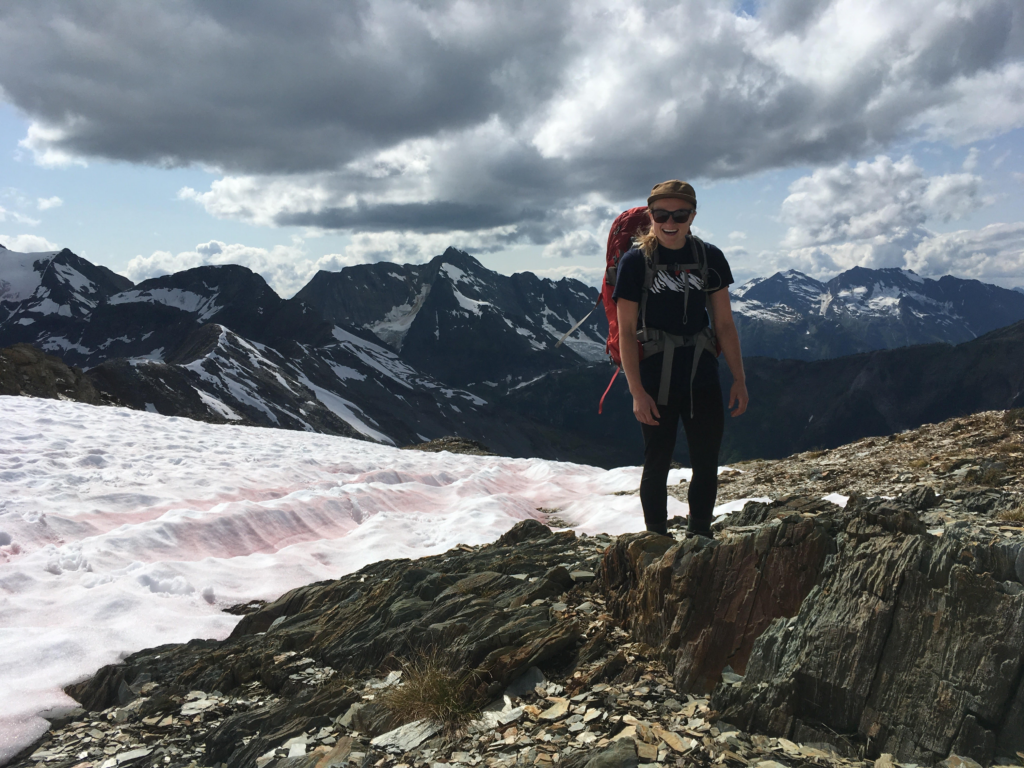
Chloe Kuch, Undergraduate research assistant
Chloe Kuch grew up in the West Kootenays and developed a passion for wildfire through her seven years of experience on an initial attack crew. Having witnessed multiple record-breaking seasons, she is motivated to help decrease the negative impacts of fire on communities through mitigation and prevention efforts, including prescribed fire and cultural burning. She’s currently completing her final semester of the Bachelor of Natural Resouce Science program, where she is working on a research project that uses dendrochronology and fire-scarred trees from the Lac du Bois Park outside Kamloops, BC. Her research takes a finer looks at the park’s historical fire frequency, seasonality, fire climate relationship, and whether the identified fire events are similar to other analyses documenting past fire histories in the area.
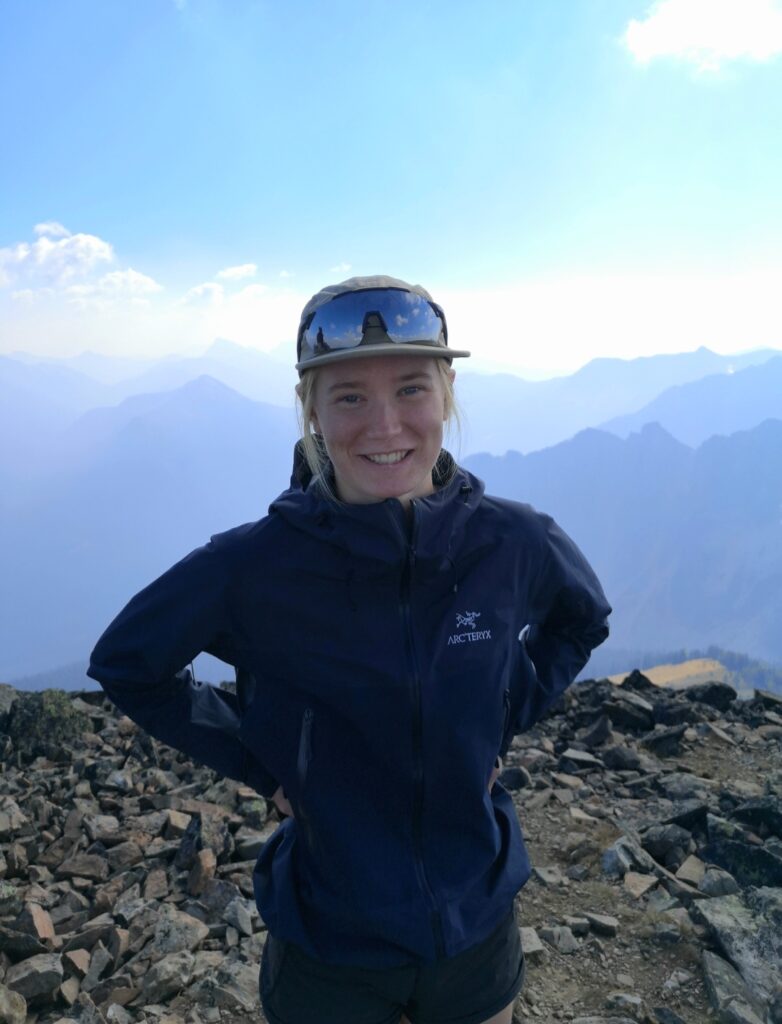
Leah Nash, Undergraduate research assistant
She has recently started working with WiLDLAB as a Research Assistant, helping with Masters students’ data processing. She is excited to continue research into wildfire and capitalize on the great connections she has made through this position. She is in her final year of studying Natural Resource Science at TRU, and will be working on her own wildfire research projects as part of her undergraduate degree. She will be studying plant species diversity following the 2021 Churn Creek wildfire, as well as studying correlation between wildfire severity and FBP fuel types using spatial analysis. For the last five summers, she has worked for the BC Wildfire Service as a rappel firefighter in Salmon Arm, and when not at school or work, you can find her mountain biking, running, hiking, or exploring farmers markets.
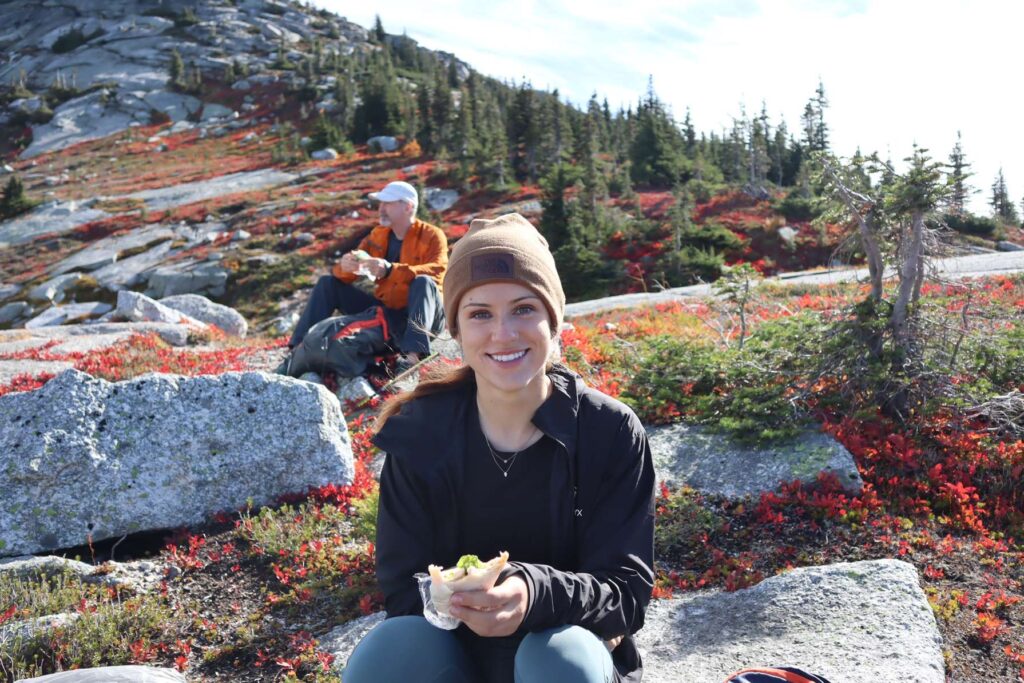
Tegan Heshka, Research assistant
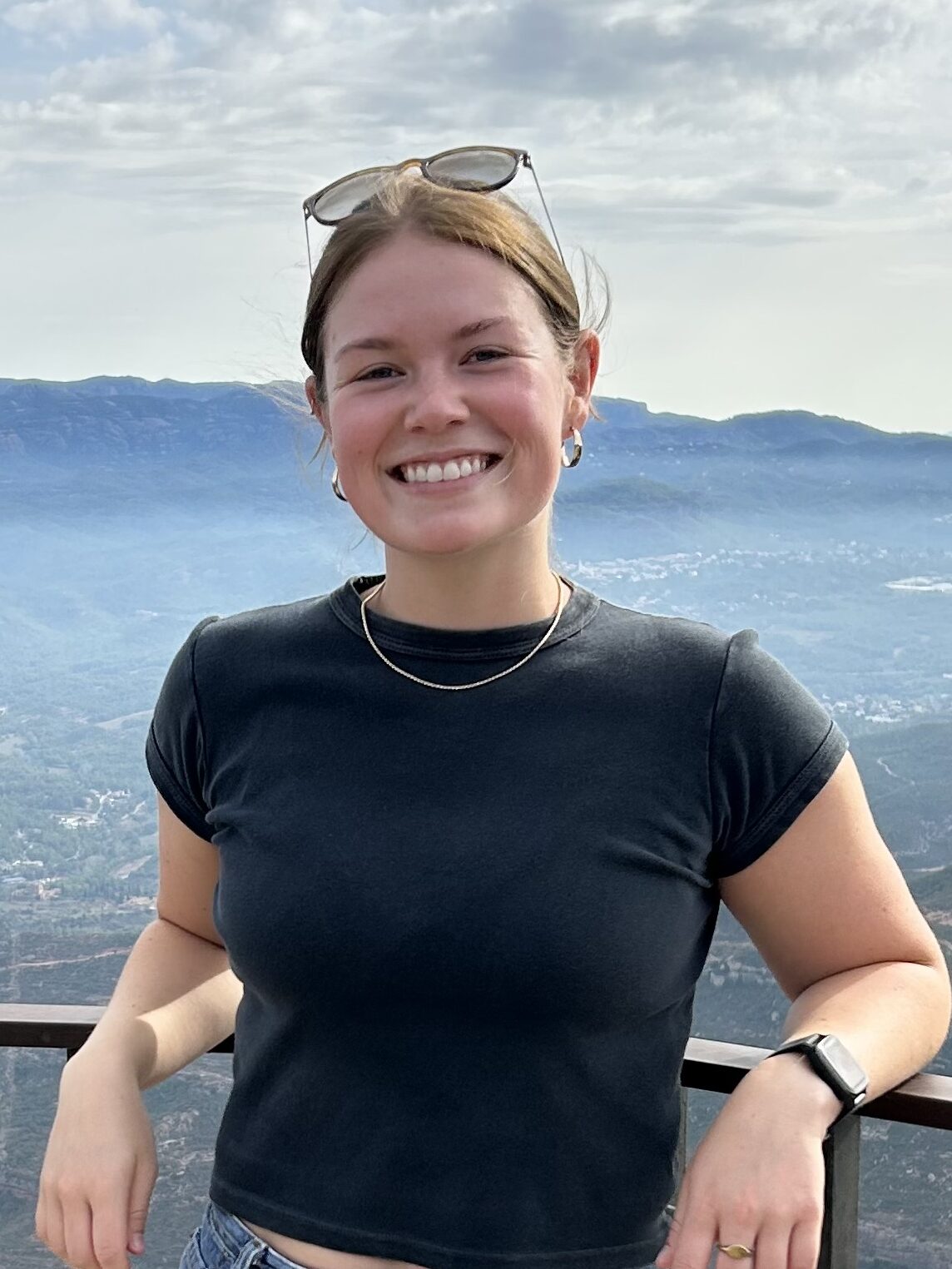
Sarah McIntyre, Research assistant
Sarah McIntyre is Kamloops born and raised, acting on her interest in forest ecology with TRU by assisting student-led research projects in Churn Creek Protected area, Xeni Gwet’in Title Lands (Nemiah Valley), and Glacier National Park. She brings bring a cheeky analytic perspective with her newly minted BSc in Biochemistry at UBC, combined with fire behaviour experience after working for BC Wildfire Service in the Cariboo Fire Centre. More often out of the lab than in it, she enjoys cold water dips and coffee, in that order.
